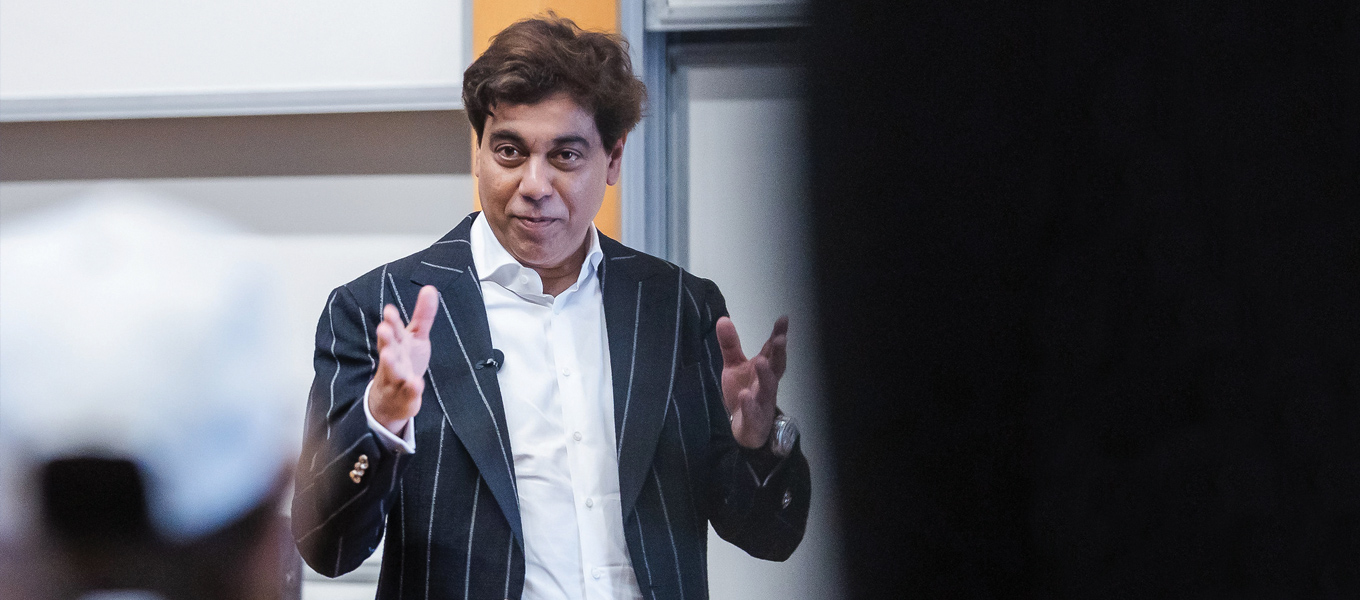
Deepak Ohri leads one of the world's most admired luxury brands by marshalling his team to push boundaries. He once challenged his staff to create the ultimate dinner – and they did, creating the world's most expensive meal of its kind in 2007. Yet he still remembers how a simply packaged toothbrush was marketed as a luxury item in his native country of India, in areas where such basics were in short supply.
An entrepreneurial mindset, he noted, allows individuals to create a new perspective on branding. It's one that can help build success stories at every stage of the entrepreneurial journey. Ohri shared this story and many others at FIU Business during the fall 2021 semester. It marked Ohri's first official visit to the FIU Business campus as the newly appointed executive in residence at the college's Pino Global Entrepreneurship Center.
As CEO of Bangkok-based lebua Hotels, Ohri has refined a set of guiding principles for entrepreneurial success. Since 2006, he has worked in Asia and New Zealand, founding a luxury hotel chain. His innovative "Million Baht Dinner," a 10-course, $30,000 meal, was one example of entrepreneurial thinking in the luxury market.
"Entrepreneurship is more important in today's world," said Ohri, emphasizing the need for people to start their own businesses in post-COVID-19 life. He challenged students in the room to examine their own perspectives on entrepreneurial and corporate thinking, directly engaging them to develop their own career vision by learning inside and outside the classroom.
In a series of 16 short stories, Ohri outlined his keys to success, each one corresponding to a guiding principle: efficiency, nature, time, rules, execution, packaging, research, ethics, naivety, emotions, understanding, responsiveness, self-respect, hard work, innovation and perspective. Together, they spell out "entrepreneurship" and are how he directs himself as a businessman. Ohri's guidance focuses on building relationships with others, hard work and being innovative in every area of entrepreneurship.
"It has to do not with capability, but with outward thinking," said Ohri. "Your biggest asset is people," he added, noting that nothing can replace the value of people in business.
"No college is going to teach you that you're going to fall a lot," said Ohri, explaining that entrepreneurs can be encouraged by the lessons they'll learn as they go and the ways they'll grow.